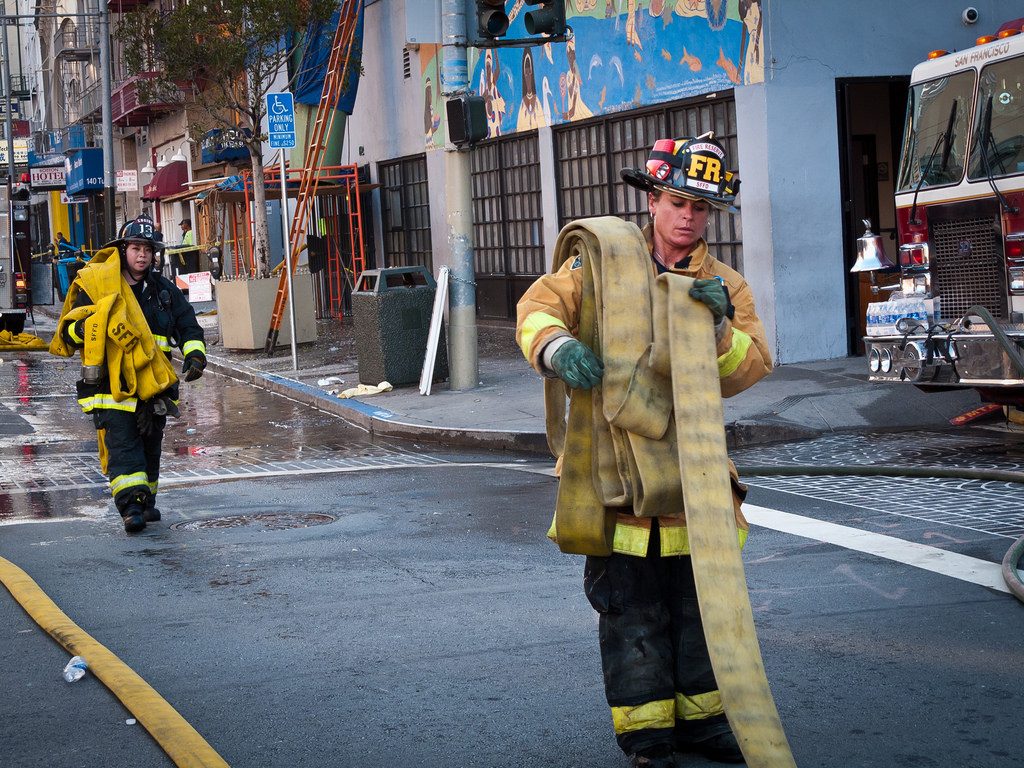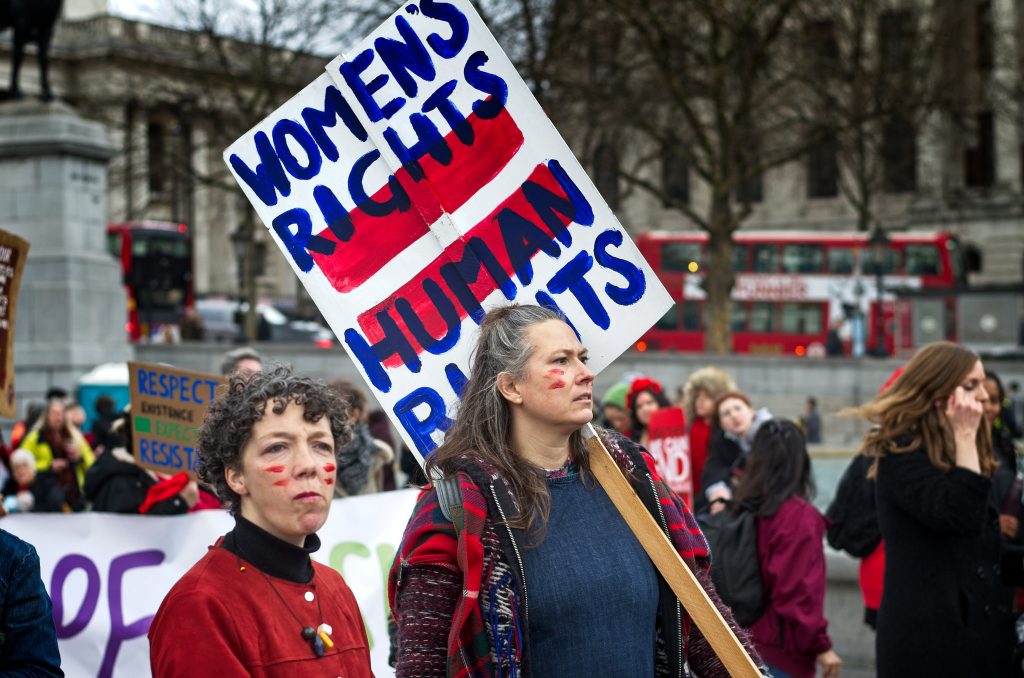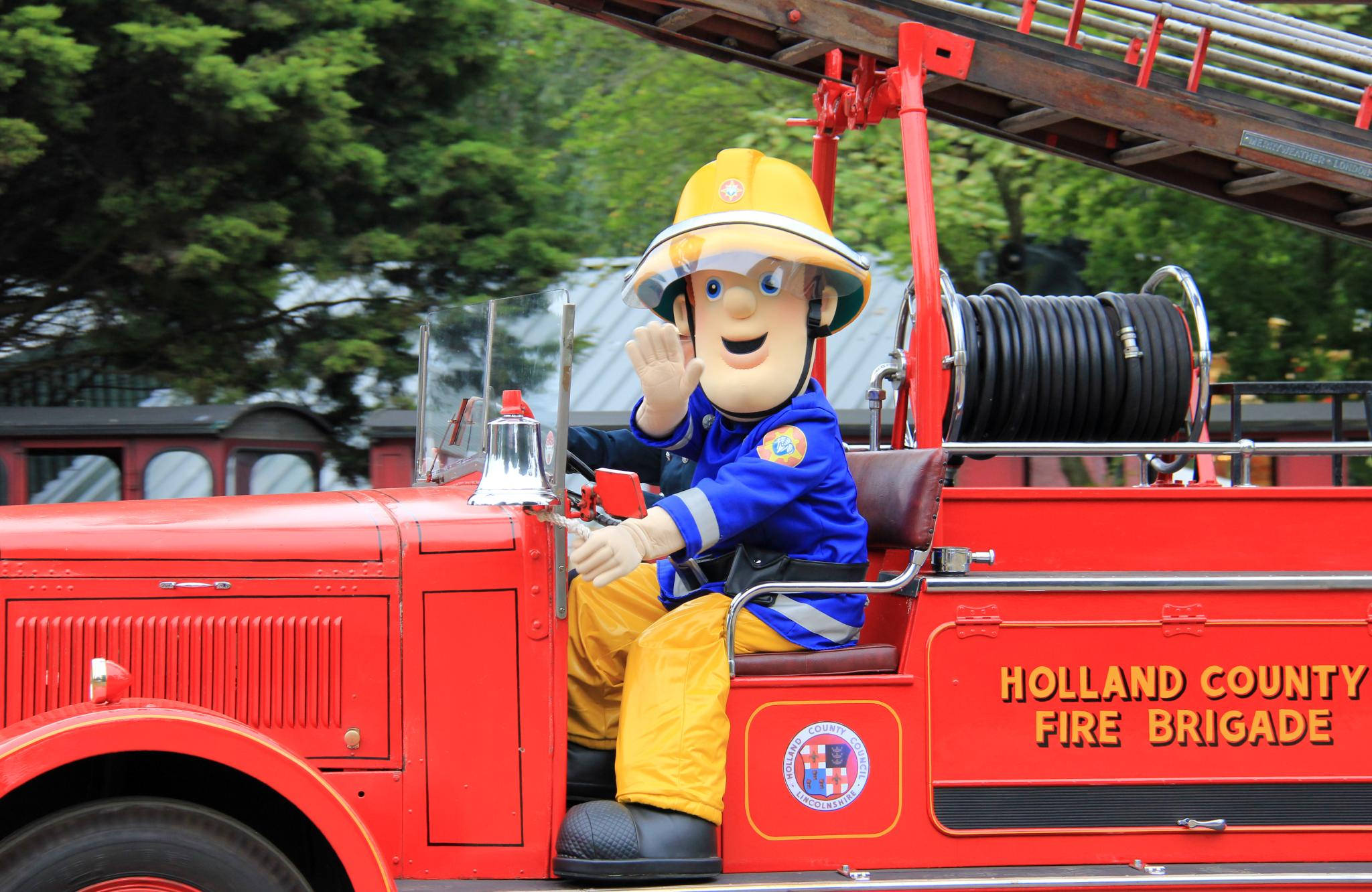David Jones, the creator of classic children’s TV show Fireman Sam, says he “can’t see” how the programme has a problem with gender stereotyping.
His comments follow those of a senior fire officer Alex Johnson, who told the Telegraph recently that reality in the service is “nothing like it is portrayed” in the show.
Johnson’s interview has since sparked debate over whether the lack of female characters in Fireman Sam, as well as the gendered language used throughout, is putting women off of becoming firefighters.
Jones, 74, who is himself an ex-firefighter, began working on the concept for Fireman Sam in the 1980s.
“It is for children, it wasn’t meant to be advertised as a recruiting post,” he said during an interview on Radio 2.

Image credit: Female firefighters fighting flames/Flickr
“It is supposed to teach kids some small safety items. Someone doesn’t join the fire service when they watch Fireman Sam.
“They wouldn’t be the right people for the job if that was their mentality.”
Why Did Alex Johnson Criticise A Children’s TV Show Made In The 80s?
Ms Johnson is on a campaign drive to attract more women into the fire services.
She claims that poor representation in the media is to blame for the lack of women and BAME applicants.
According to the National Fire Chiefs Council, just 5.2 per cent of firefighters in England are women.
Meanwhile, just 3.9 per cent are from a minority background.
Alongside Ms Jones’ campaign, the London Fire Brigrade has stoked up some gender equality publicity of its own, encouraging the use of the term “firefighter” instead of “fireman” and claiming that Fireman Sam character Penny Morris is highly “devalued”.
Sadly Penny’s involvement in the show is completely devalued by the constant use of the outdated term fireman in the catchy theme tune, title and on all merchandise. Language matters #FirefightingSexism https://t.co/ZC55Ujq0FX
— London Fire Brigade (@LondonFire) March 18, 2019
Dany Cotton, London Fire Commissioner, said she had been bombarded with abuse and had hate mail sent to her workplace after she launched a campaign to encourage people to refer to “firefighters” rather than “firemen” last year.
Cotton had suggested that Fireman Sam should be renamed Firefighter Sam as part of a campaign to encourage more women to sign up to the fire brigade.
What Human Rights Laws Promote Equality In Public Services?
The Equality Act 2010 came into effect to provide a stronger and more streamlined legal framework for effectively tackling disadvantage and discrimination.
The Act covers nine protected characteristics, including sexual orientation, race, religion, gender reassignment, pregnancy and maternity, age, disability, and marriage or civil partnership.

Image credit: Women’s rights protestors/Flickr
It means that people are not allowed to discriminate, harass or victimise another person with one of these protected characteristics. There should be protection for those facing discrimination – or for those under attack for their association with someone who has a protected characteristic.
The Government, and any public authority receiving money from the Government to provide a service, have a responsibility to ensure that the Equality Act is adhered to. They have an obligation to protect, promote and enforce equality – including when it comes to the language used within the service and equal opportunities for the people it employs.







